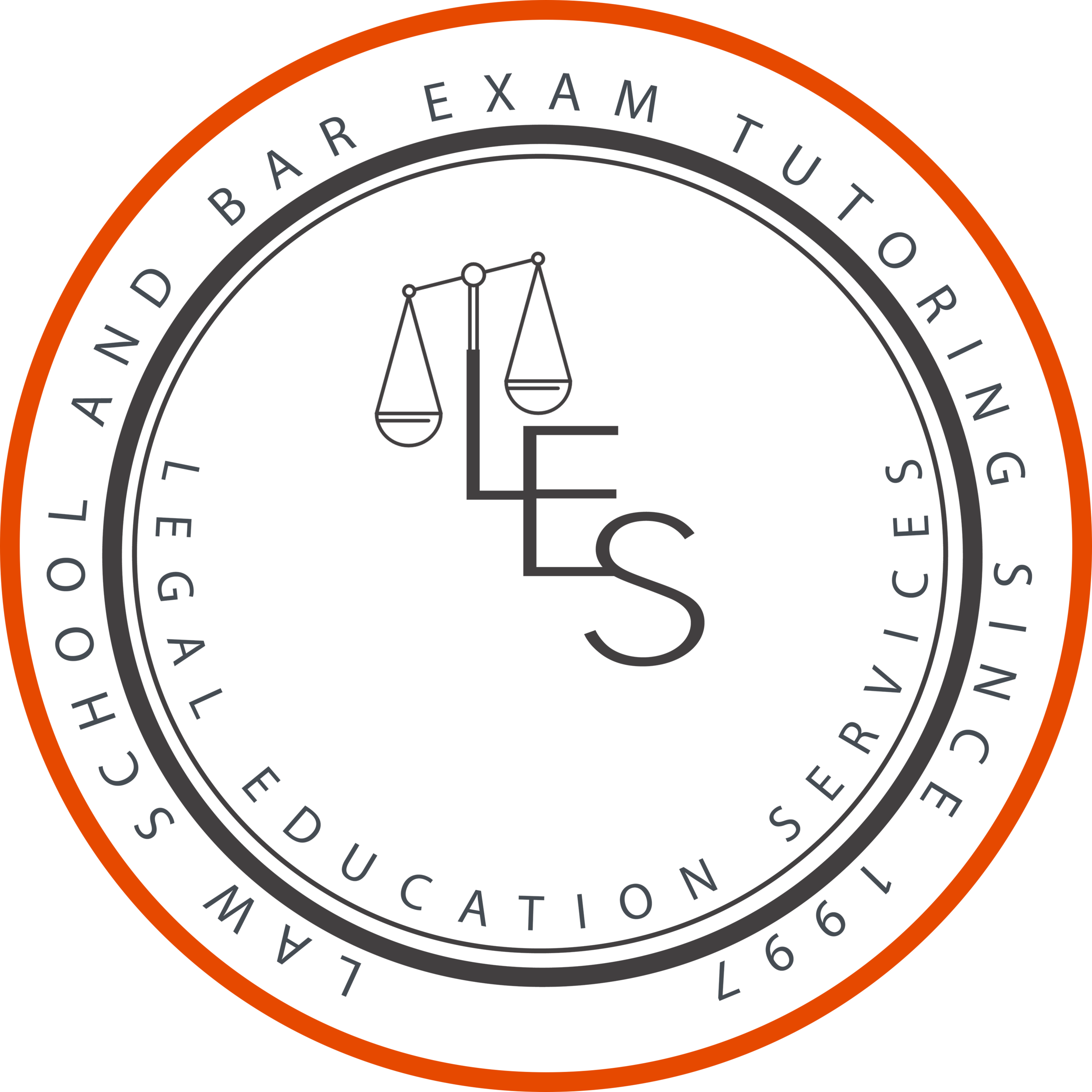Course Descriptions
Legal Education Services offers the following courses
+ Business Organizations
Covers partnerships; limited liability companies; some aspects of limited partnerships, including formation of the limited partnership and the potential loss of limited liability of limited partners; corporations, including closely held and publicly owned corporations; social policy developed under the common law; and agency principles.
+ Civil Procedure I & II
Covers personal jurisdiction, notice and service of process, subject matter jurisdiction, removal, transfer, venue, simple joinder, pleading, default, dismissals, the Erie doctrine and related matters. Also covers complex joinder, class actions, former adjudication, discovery, trial, summary judgment, post-trial motions, and related matters.
+ Constitutional Law I & II
Covers judicial review, Tenth and Eleventh Amendment doctrines, separation of powers, federal-state relations, Congressional powers, state action, and the Contracts Clause. Also Covers due process, equal protection, freedom of expression, and freedom of religion.
+ Contracts Law I & II
Covers contract formation, consideration, remedies for breach of contract, and statute of frauds. Also covers the parol evidence rule, interpretation, avoidance, conditions, substantial performance, anticipatory repudiation, third-party beneficiaries, assignment and delegation.
+ Criminal Law
Studies both the common law and modern statutory schemes. Covers the crimes of homicide, rape, assault, battery, kidnapping, arson, burglary, theft, attempt, solicitation, and conspiracy; general principles of imputability and responsibility; defenses; and double jeopardy principles.
+ Criminal Procedure
Involves the criminal case in a constitutional rather than tactical context. Primary emphasis is on the Fourth, Fifth, and Sixth Amendments.
+ Equities & Remedies
Studies basic characteristics of legal, equitable, and restitutionary remedies and their application to tortious wrongs and disrupted transactions.
+ Evidence
Covers the Federal Rules of Evidence and their common law sources. Includes standards and procedures for admission and exclusion of all forms of evidence. Examines problems of relevance, prejudice, character and conduct evidence, hearsay evidence, testimonial privileges, and expert testimony.
+ Federal Administration Law
Examines the principles governing the theory, practice, and procedures of federal administrative law. Covers delegation, separation of powers, access to information, rule making, due process, adjudication, and judicial review.
+ Professional Responsibility
Examines the ethical dimensions of the lawyer's role, duty, and tactics as advisor, counselor, and problem-solver in civil and criminal settings. Inculdes the study of the ethical obligations of the profession in delivering legal services. Covers the American Bar Association Model Code of Professional Responsibility, Model Rules of Professional Conduct, and Code of Judicial Conduct.
+ Property Law I & II
Covers the ownership and possession of real property, estates in land, introduction to mortgages, and the transfer of property fo value or gratuitously. Also involves land-use fundamentals: landlord-tenant rights and duties, neighbor's rights, easements, covenants and servitudes, zoning and subdivision controls, eminent domain and inverse condemnation.
+ Sales
Covers Uniform Commercial Code Articles 2 and 3, with limited coverage of Article 4.
+ Secured Transactions
Addresses the rights and obligations accompanying security interests in personal property. Article 9 of the Uniform Commercial Code is studied in detail along with portions of the Federal Bankruptcy Code.
+ Taxation
An in-depth study of federal income taxation, including the concepts of income, identifcation of the proper taxpayer, deductions, characterization of income, and the timing, deferral and non-recognition of income.
+ Torts I & II
Covers intentional interference with person and property, privileges, negligence liability, including duty rules, breach and causation, and the defenses of comparative and contributory negligence and assumption of the risk. Also covers damages, including wrongful death and survival actions, immunities, statutes of limitation, joint and several liability, vicarious liability, strict liability, products liability, workers' compensation, misrepresentation, defamation, and invasion of privacy.
+ Wills Estates & Trusts
Introduces students to the general concepts of succession to property. Covers intestate succession, family protection, and the law of wills. Also covers trusts and introduces students to transfer taxes along with both the Epic & UPC codes.

